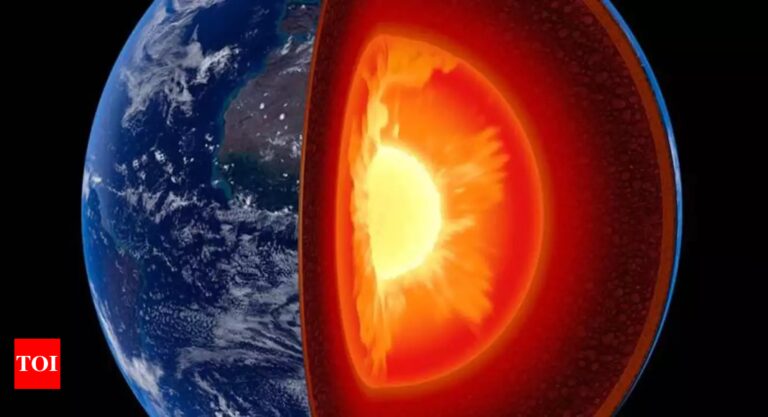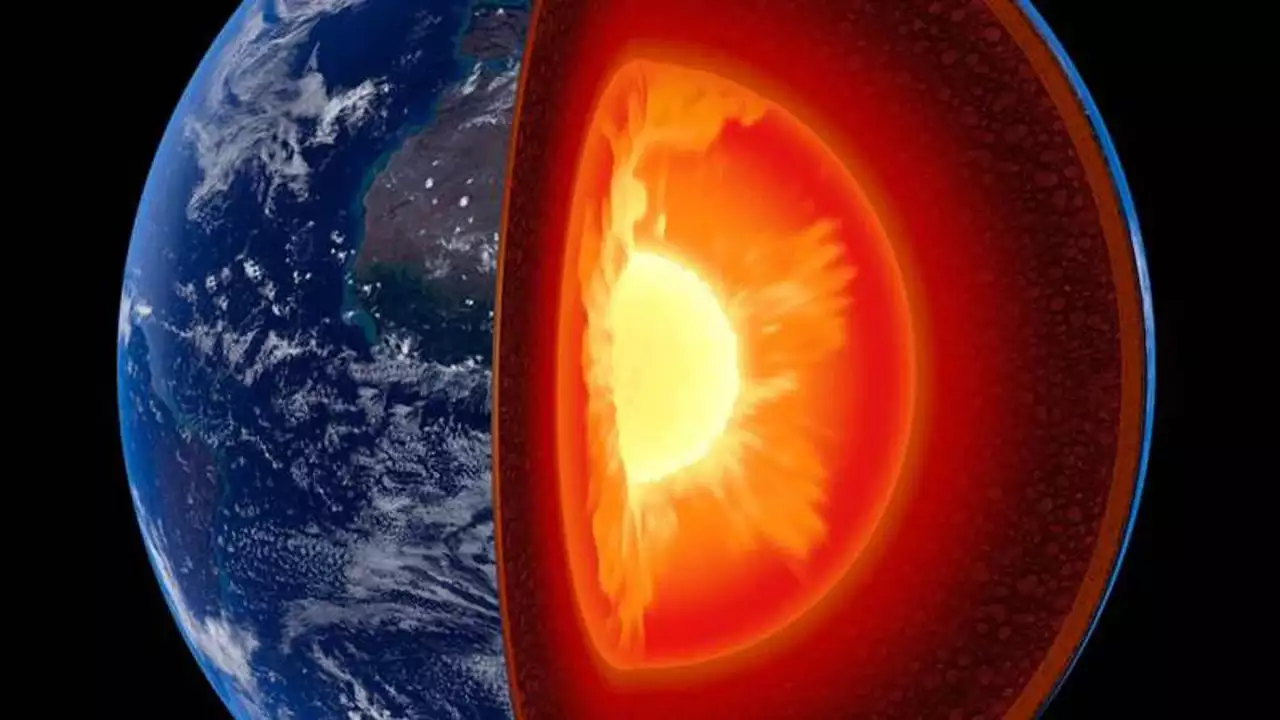
[ad_1]
NEW DELHI: A scientific revelation has sparked widespread fascination across social media platforms as researchers unveil the existence of a colossal ocean concealed beneath the Earth’s crust, residing 700 kilometers below the planet’s surface. The finding published in the 2014 scientific paper titled ‘Dehydration melting at the top of the lower mantle,’ has reignited curiosity about the mysteries lurking within our planet.
The oceanic reservoir, within a mineral known as ringwoodite, surpasses the combined volume of all surface oceans thrice over, presenting a challenge to our understanding of Earth’s water origins.Geophysicist Steve Jacobsen, in the discovery team, sheds light on the unique properties of ringwoodite, describing it as a “sponge” with an unparalleled capacity to trap water deep within the Earth.
Jacobsen said, “I think we are finally seeing evidence for a whole-Earth water cycle, which may help explain the vast amount of liquid water on the surface of our habitable planet. Scientists have been looking for this missing deep water for decades.”
The breakthrough came after the analysis of seismic activity, with seismometers detecting shockwaves reverberating beneath the Earth’s surface. By scrutinizing seismic data from over 500 earthquakes using a network of 2000 seismographs across the United States, researchers discerned a discernible slowing of seismic waves passing through hydrated rock, indicative of the presence of this expansive subterranean water reserve.
“The high water storage capacity of minerals in Earth’s mantle transition zone (410- to 660-kilometer depth) implies the possibility of a deep H2O reservoir, which could cause dehydration and melting of vertically flowing mantle. We examined the effects of downwelling from the transition zone into the lower mantle with high-pressure laboratory experiments, numerical modelling, and seismic P-to-S conversions,” said the scientists.
“This is substantial evidence that water on Earth came from within,” Jacobsen asserts, underscoring the paradigm-shifting implications of the discovery.
Furthermore, the findings challenge conventional theories regarding the origins of Earth’s water, suggesting that it may have originated from within the planet rather than arriving via comet impacts, as previously proposed. This revelation not only captivates with its sheer magnitude but also offers a fresh perspective on Earth’s water cycle, proposing that water may seep from the planet’s core, gradually shaping the surface we inhabit.
The implications extend beyond mere scientific curiosity, as Jacobsen highlights the significance of this reservoir in sustaining terrestrial ecosystems. Without this concealed water source, Earth’s surface would be devoid of the life-sustaining liquid, fundamentally altering the planet’s landscape as we know it.
The oceanic reservoir, within a mineral known as ringwoodite, surpasses the combined volume of all surface oceans thrice over, presenting a challenge to our understanding of Earth’s water origins.Geophysicist Steve Jacobsen, in the discovery team, sheds light on the unique properties of ringwoodite, describing it as a “sponge” with an unparalleled capacity to trap water deep within the Earth.
Jacobsen said, “I think we are finally seeing evidence for a whole-Earth water cycle, which may help explain the vast amount of liquid water on the surface of our habitable planet. Scientists have been looking for this missing deep water for decades.”
The breakthrough came after the analysis of seismic activity, with seismometers detecting shockwaves reverberating beneath the Earth’s surface. By scrutinizing seismic data from over 500 earthquakes using a network of 2000 seismographs across the United States, researchers discerned a discernible slowing of seismic waves passing through hydrated rock, indicative of the presence of this expansive subterranean water reserve.
“The high water storage capacity of minerals in Earth’s mantle transition zone (410- to 660-kilometer depth) implies the possibility of a deep H2O reservoir, which could cause dehydration and melting of vertically flowing mantle. We examined the effects of downwelling from the transition zone into the lower mantle with high-pressure laboratory experiments, numerical modelling, and seismic P-to-S conversions,” said the scientists.
“This is substantial evidence that water on Earth came from within,” Jacobsen asserts, underscoring the paradigm-shifting implications of the discovery.
Furthermore, the findings challenge conventional theories regarding the origins of Earth’s water, suggesting that it may have originated from within the planet rather than arriving via comet impacts, as previously proposed. This revelation not only captivates with its sheer magnitude but also offers a fresh perspective on Earth’s water cycle, proposing that water may seep from the planet’s core, gradually shaping the surface we inhabit.
The implications extend beyond mere scientific curiosity, as Jacobsen highlights the significance of this reservoir in sustaining terrestrial ecosystems. Without this concealed water source, Earth’s surface would be devoid of the life-sustaining liquid, fundamentally altering the planet’s landscape as we know it.
[ad_2]
